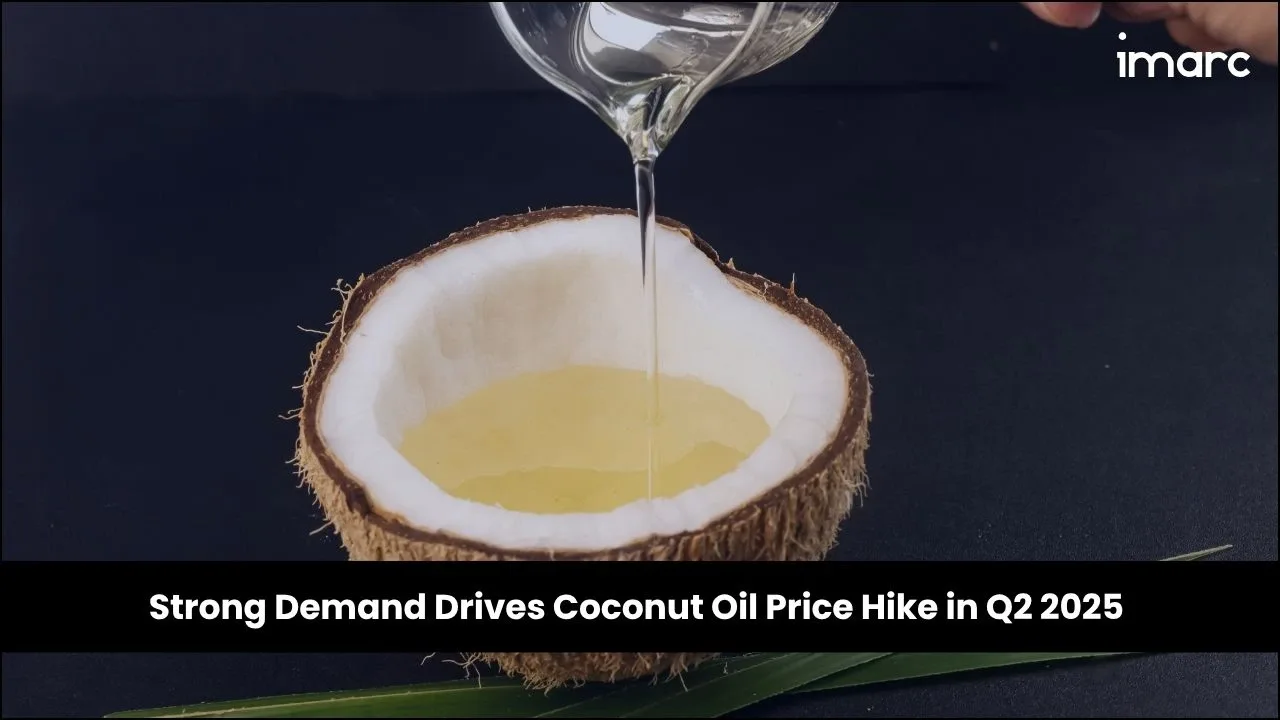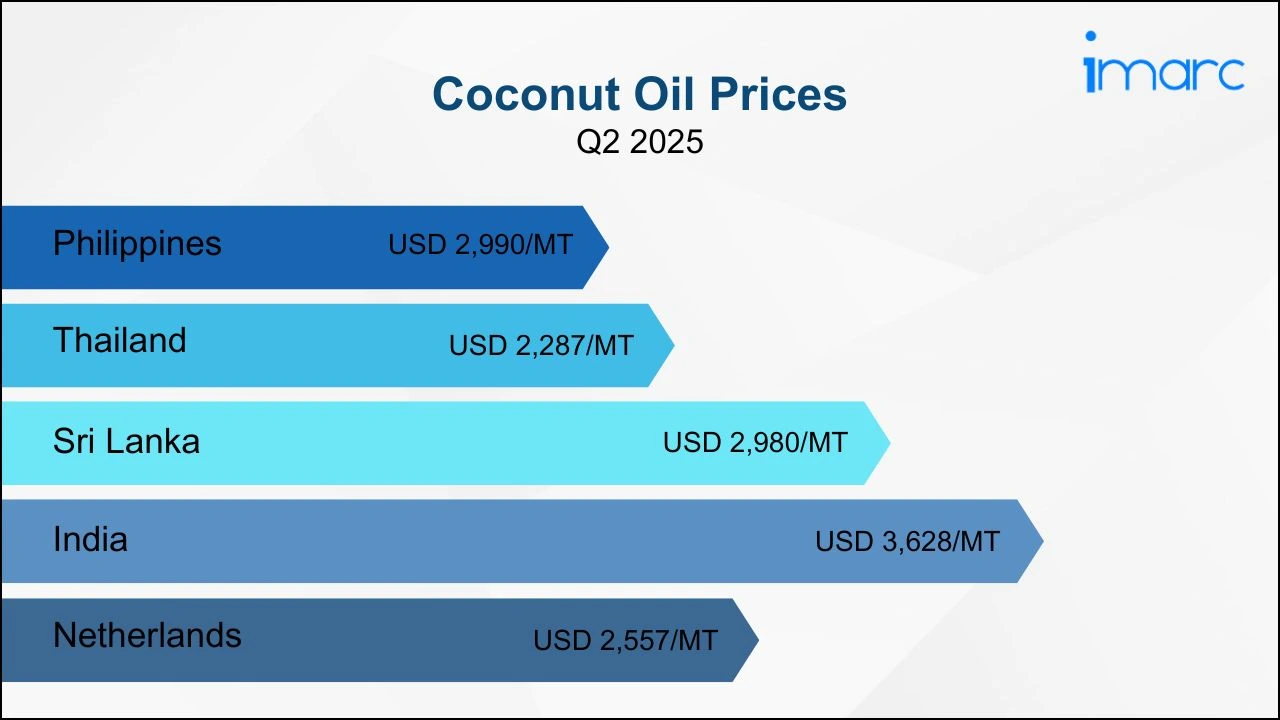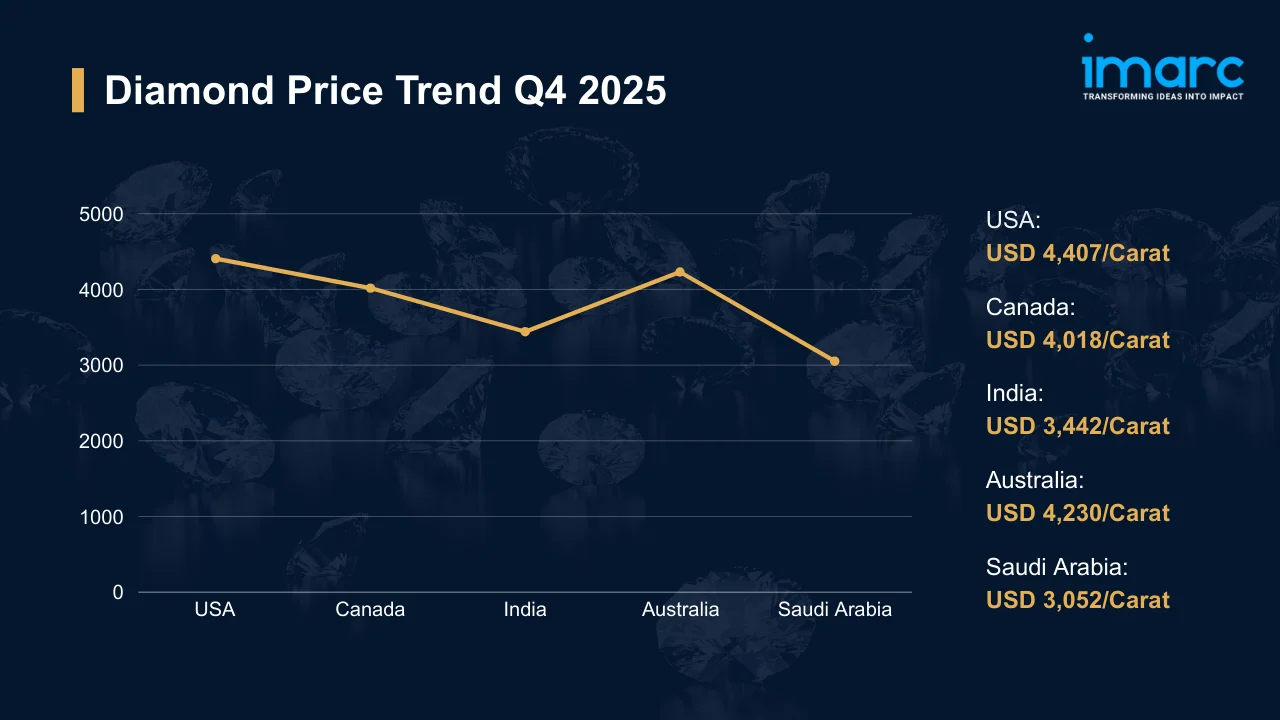Strong Demand Drives Coconut Oil Price Hike in Q2 2025
23-Jul-2025
Amid tightening supply and shifting energy policies, the global coconut oil industry is experiencing notable pricing fluctuations, according to IMARC Group’s latest publication, Coconut Oil Price Trend, Index and Forecast Data Report 2025 Edition, that provides updated insights for Q2 2025. The report highlights sustained demand from food, cosmetics, and pharmaceutical sectors, combined with tight supply due to climatic disruptions and logistical challenges. The report presents a detailed view of pricing dynamics across key regions including Asia Pacific, Europe, and North America, where market volatility, domestic shortages, and import dependencies played a significant role.
Q2 2025 Coconut Oil Prices:
- Philippines: USD 2,990/MT
- Thailand: USD 2,287/MT
- Sri Lanka: USD 2,980/MT
- India: USD 3,628/MT
- Netherlands: USD 2,557/MT

To access real-time prices Request Sample
The prices of coconut oil across key markets reflect its essential role in high-performance industries such as food, cosmetics, and pharmaceuticals, where consistent demand, limited supply, and specialized applications continue to support a firm global pricing trend.
Key Regional Price Trends and Market Drivers:
Philippines
Coconut oil prices surged at USD 2,990/MT due to seasonal supply limitations and strong export demand during June 2025. Despite broader softness in vegetable oil markets, the country's coconut oil remained in demand, reflecting non-substitutable applications in multiple industries.
Thailand
The market encountered price fluctuations amid limited supply and changing demand, settling at USD 2,287/MT in Q2 2025. Increased global interest from the food and cosmetics sectors, coupled with internal production challenges, led to heightened buyer competition.
Sri Lanka
Export-driven supply tightening raised domestic prices, reaching USD 2,980/MT in the second quarter of 2025. The government supported the sector through cultivation subsidies and quality control measures, which contributed to price resilience.
India
The domestic market saw significant price escalation at USD 3,628/MT during June 2025, primarily led by Kerala. Copra shortages due to weather disruptions and reduced coconut yields drove wholesale and retail prices higher, with strong demand from pharmaceutical and food sectors further amplifying the impact.
Netherlands
As a key import hub, the Dutch market experienced elevated prices tied to higher import costs, reaching USD 2,557/MT during Q2 2025. Climatic disruptions in source countries and logistical hurdles affected availability and influenced pricing strategies.
Coconut Oil Industry Overview:
The global coconut oil market reached a value of USD 6.61 Billion in 2024 and is projected to grow to USD 11.75 Billion by 2033, reflecting a compound annual growth rate (CAGR) of 6.27% during 2025-2033. This growth trajectory underscores the material’s expanding role across food, cosmetics, pharmaceutical, and biofuel industries. Rising consumer preference for natural and plant-based products continues to fuel steady demand, especially in developed markets and urban centers in emerging economies.
Some of the key market drivers include the increasing adoption of vegan and plant-based diets, rising health consciousness, and expanding applications in food preparation and personal care products. Additionally, the product’s antimicrobial and anti-inflammatory properties have strengthened its appeal in pharmaceutical formulations. The growing demand for sustainable and clean-label ingredients and the rising global interest in functional and ethically sourced oils further contribute to market growth.
Recent Market Trends and Industry Analysis:
The coconut oil industry is experiencing strong growth, driven by its widespread adoption as a healthier alternative to animal fats, particularly in the context of rising vegan and plant-based dietary trends. Consumers are increasingly turning to coconut oil for its versatility in cooking, baking, and as a dairy substitute, supported by its unique flavor and high smoke point. The report notes that this shift is also being shaped by growing ethical and environmental concerns, with global studies indicating that a large-scale dietary transition could significantly reduce greenhouse gas emissions and climate mitigation costs.
Beyond the food sector, coconut oil is gaining traction in the pharmaceutical industry due to its lauric acid content, which provides antimicrobial and anti-inflammatory benefits. It is a preferred ingredient in ointments, lotions, and skin treatments, further enhancing its market value. The material’s natural origin and therapeutic properties align with increasing demand for clean-label and multifunctional products. With considerable growth in the Indian pharmaceutical sector, the use of coconut oil in medicinal and cosmetic applications is expected to expand significantly.
Strategic Forecasting and Analysis:
IMARC’s report incorporates forecasting models that project near-term price movements based on evolving trade policies, raw material supply, and technological trends. These tools enable businesses to mitigate risk, enhance sourcing strategies, and support long-term planning.
Key Features of the Report:
- Price Charts and Historical Data
- FOB and CIF Spot Pricing
- Regional Demand-Supply Assessments
- Port-Level Price Analysis
- Sector-Specific Demand and Supply Insights


.webp)
.webp)




.webp)




.webp)












